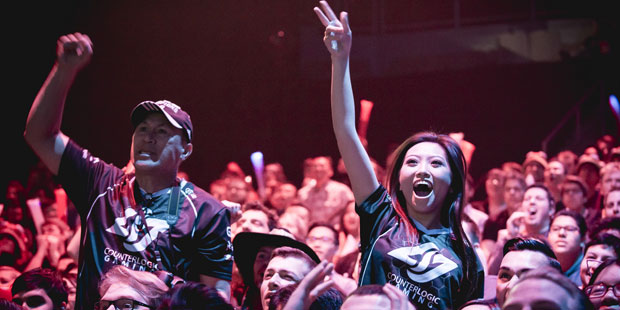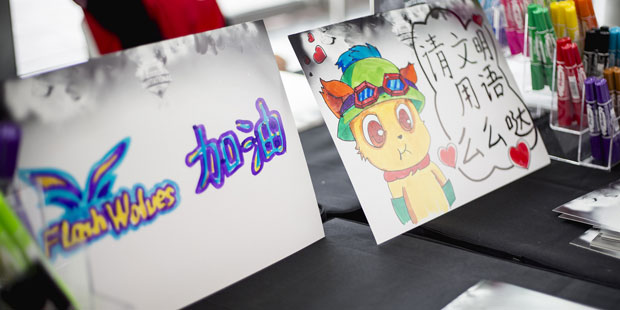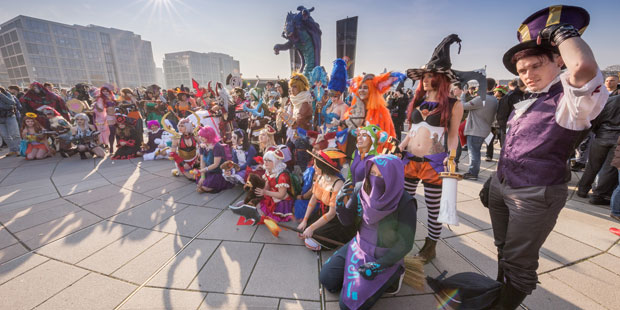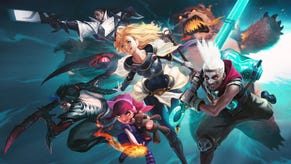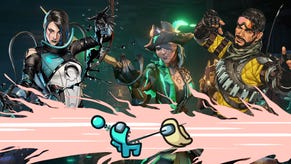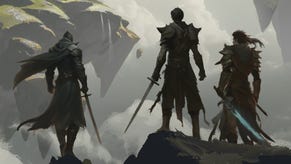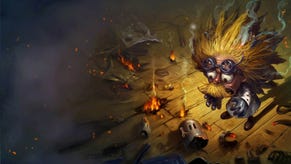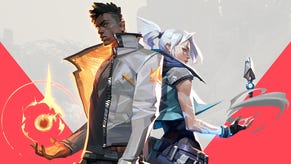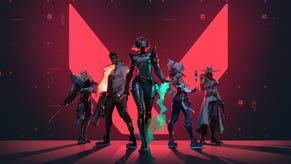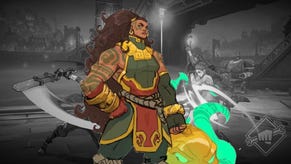League Of Legends: Whalen Rozelle On How To Build A Fandom's Connective Tissue
Becoming a fan
While in China for the League of Legends [official site] Mid-Season Invitational, I spent some time talking to Whalen Rozelle. He's Director of Esports over at Riot and a lot of the conversation ended up being about creating connections. That's a focal point for League of Legends at the moment – finding ways to forge personal connections between the professional scene and the viewers and the non-professional players.
Before I get into the Q&A itself I just wanted to say that I think this is one of those peculiar by-products of the way intellectual property and esports collide. There are multiple MOBAs which involve a lane-pushing element but they're divided up into separate sports because they have different characters, engines, map elements, balancing and so on. Their complexity and their proprietary nature means you need to buy into a particular company to participate, either investing money or time or both.
There are parallels with traditional sports and the revenue those can generate for organisations, but they also lack that… timelessness? bring-a-ball-and-a-bat-to-the-park-ness? … that I think helps traditional sports become part of the general culture. There's an easiness to the rules of most traditional sports, and you don't have to patch them or agree to new EULAs when you want to play. They also have a sort of localisation and a familial element to them which esports hasn't embedded yet. It's partly because some esports have teams which span multiple continents and don't lend themselves to local stadia. It's also partly because rosters can be far less stable, partly because most esports are so, so young in most cases, compared to the multiple decades a lot of sports teams have had to establish themselves.
Maybe that will change over time. I have an affinity for several teams, but it's more that the affection is directed at particular permutations of players, or individuals. For League I have a real soft-spot for an older lineup of European side, Fnatic. The way that lineup ended up dispersing I spent last season with an eye on both Fnatic and Origen. With Dota I really like Na'Vi's older lineup because I really liked the work a player called KuroKy did. Navi's most famous player/personality is actually Dendi and I think he's great, but I ended up far more interested in Team Liquid which is now headed up by KuroKy as a result. I came to those (and many other) personal ties to the scene over a number of years, and as a result of the work that I do. But for everyone else, and as a way of promoting its esports offering (obviously a business concern, but I also don't doubt Rozelle's own enthusiasm for his work) you can see why a company would need to think about ways to forge those connections quickly if they want to grow their offering as an esport.
Here's the interview:
Pip: You talk a lot about sports as an inspiration and a template to reference - are there any other industries or forms of entertainment that you're also looking to - theatre, perhaps?
Whalen: I think from a storytelling perspective – theatre meeting sports - the Olympics and the stories told around the Olympics is probably the closest sports gets to classic storytelling.
I think esports inherently - because there is no regional affinity that's naturally present, if you're... I apologise for the American sporting references, but being from the Bay area, being from San Francisco I have a natural affinity to like the team from that region and so it makes it easy to get into it. You have family there, there's an ecosystem built up around San Francisco Bay sporting teams, right? One of the reasons we're investing so much in storytelling and why I think we look outside sports for that storytelling inspiration is because one of the challenging things we're looking to make easier [with esports] is how you become a fan.
When you get in there, who do you root for and why do you root for them? How do you create an emotional connection between you as a fan and a team or a player. So you see us creating stuff like Drive [a series about what drives particular players] and Legends Rising [an in-depth look at pairs of players], trying to go a bit deeper on storytelling than you see in traditional sports because we think that storytelling can be a source of that emotional connection, to create that bond.
The end state of what we're looking for is very similar to sports where you have passionate fan-bases that are connected emotionally to a team or a player. The fans, their own journey of rising and falling with the teams and coming back every year is, at its essence, what sports is all about and we think that's something we're striving to achieve. But because esports is different and there are differences both in our ecosystem and in the game, it's harder to approach so we have to focus on different ways and techniques to get to that end goal.
Pip: It's probably impolitic to ask what draws you to particular LCS teams but what about other esports? Is there anything that's drawn you to a particular... I don't know, Starcraft player?
Whalen: I'll use Starcraft because that was my introduction to esports. I watched a little bit of Brood War but really got into it with StarCraft II. I'm a traditional sports fan but I was working at Curse at the time and I was really into - obviously I've been a gamer my whole life. I was like, 'Oh, this Starcraft II thing!' and you've got Husky and HD and a lot of these new casters. Really the casters and the personalities were the ones who got me into Starcraft and the personas and the people they latched onto were the people I enjoyed.
So I remember very vividly it was Husky and HD because I watched them a lot. The players they liked were the players I gravitated to. That was my introduction to the world. I eventually started liking Zerg so I started moving from liking some Terran players to some Zerg players and it was a personal journey.
For us we try to do the same thing in League of Legends where we try to find the reason people will attach on and try out esports, whether that's because they like playing League of Legends and want to get better - that's a huge reason people watch esports and that's not a reason people watch sports so that's a difference right there. We're creating pieces of content that might fit with 'Hey, you want to learn how to be a better player? We now have teamfight breakdown', and we have other pieces of content that are like these are ways that if you're interested in getting better this might be a bridge to becoming a fan.
You might watch a teamfight of a team you find particularly impressive and [think] 'Who is this Rox Tigers team?' And you go in and you're like, 'Oh, the Rox Tigers!' and maybe there's a story on one of their players that you like and you dive into the world and naturally find a home and resting place. For me it's the casters and I think it could be anything. Casters, education, friends - hey, my friends all like this team - or it could be a particular pro, or a story.
Something that resonated strongly with me was the Drive piece we did on Matt. I didn't know Matt was playing in Hawaii on 200 ping on a crappy computer that bluescreened all the time and I'm sitting there trying to hit platinum on a superpowered machine with 30 ping…
But his relationship with his parents and him being an inspiration to his parents. That, for whatever reason, struck a chord with me.
In addition to running the league and putting on the production for the live sport which is incredibly important we try to make sure we're creating a broader content and experience dynamic around the sport in order to try to make it easier for people to get into esports because that initial barrier is much harder.
Pip: You mentioned the teaching element. What about something like a challenge where a player has to try following along with the button presses of a pro when they're playing a hero – like Guitar Hero but for pro League?
Whalen: I think that could be supercool. We've just scratched the surface of what it could be and esports as a learning mechanism in a game that you love to play, whether that's content created alongside or in-game systems that help you. You're a TSM fan and an AD carry? Here are some moves that Doublelift can pull off - can you?
I think a lot of people make jokes around we need sandbox mode and blah blah blah but there is some credence to that and I think that as the game develops and as more features come online that enable us to take advantage of stuff like that I think it will be good for esports. It's something I'm looking forward to because at Riot we're all esports fans as well.
Pip: Another element is presentation of information – there's so much information onscreen at any given time...
Whalen: If we're talking about barriers to entry, right? Wow.
Pip: With something like soccer it's easy to communicate the basics but it's also legible when you're faced with match highlights and not a full game. How are you guys approaching making information accessible and where is there left to go on that front?
Whalen: There is a green field of possibility for us to tackle in terms of accessibility. Not in terms of dumbing it down, but helping a new viewer ramp up to the level of sophistication. A very sophisticated viewer appreciates a ton of information at their fingertips whereas a new viewer, we might only want them focused on a few things that are very easy to understand and unlock that over time.
There's an endless debate every time Worlds rolls around of 'Should we do a noob stream?' I think the intent of people talking about the problem - they've identified a problem, that it's hard to approach the game - but they focus so hard on a noob stream as the answer.
It's actually, well, don't focus necessarily on that one solution. There are many ways people could be introduced to the game. Very frequently we find it's actually through a friend. A friend is an esports fan and watching MSI - 'Come over and we'll watch it together and I'll walk you through it'.
I think a question we've asked ourselves is how do we help that person more easily break stuff down and how can we create a sustainable system where it's like, what are the problems to approaching when you watch for the first time? Is it terminology? There might be a set of solutions around that. Is it not knowing who is playing and why you should care? Maybe we solve that with casters or storytelling content. Is it not knowing who you should care about? Maybe it's about knowing who your friends care about - you don't have a favourite team to root for? Well here are all your friends and here's who they root for.
I think there are many different aspects for approaching esports for the first time. We like to break that down into discrete problems and challenges and look at a specific set of solutions that might work for each and then be like, 'This is the highest value trade-off and let's work on that for a while'. For the past year or so it's been easier for us to tell stories around these pros because it helps build their brand too and there are a lot of other reasons why it's a positive and it gives people a reason to care so let's focus on that. But now it's like, maybe we can start tackling some of the other things through our Stream Theater about providing more information or contextual information or through other ways we haven't thought of yet.
Pip: Coming to League from Dota 2 I could understand the lanes pretty easily when I watched a pro match for the first time but the jungle was a mystery for ages - I didn't know the pathing or the camp locations or anything so when the camera cut to them I was baffled.
Whalen: It's so funny that you say that as your introduction to the jungle. Likewise, when I tried to watch Dota 2 for the first time I was like 'What do you mean resetting camps? What do you mean dragging camps to a lane?' It took so long to figure it out and again, ultimately what helped me was friends who play Dota 2 explaining it.
We think there's definitely from our side a responsibility to identify the areas we can devote to empowering existing fans and bring in new fans and easing that transition. The goal is that we want to build a large, vibrant esport which requires as many fans as possible. That's great for pro teams, that's great for pro players because of bigger fanbases, more sponsors. I said the word ecosystem about eighty thousand times at the press conference but that's what it is when we invest and do some of the not-sexy stuff. It builds a foundation for so many of these interested parties to live within our ecosystem and thrive and that's our goal.
Pip: The other word you mentioned at the press conference is "generational" and when you have a generational timeframe, how do you gauge success? How does that look when you're thinking that far ahead?
Whalen: That's a broad question. It's about building a sustainable system which means you have team owners and organisations thinking long-term. 'Hey, we want to be a part of the LCS or the LPL or the LCK or whatever - insert league here - for a long time. We want to make the long-term investment.' Let's say they could invest in a 17-year-old all-star or a 15 year old prodigy and they're like, well let's just go with the person who works for us today. I would love to see the day where teams build academies that can help train aspiring pros to be good at League of Legends.
That's one aspect of it I'd like to see. A world where everyone has a favourite team . That seems so simple but I know so many esports fans who don't have a favourite team or a favourite player. That kind of connective tissue - the emotional connection between - someone saying 'I have a favourite team is a powerful message because it says as part of my identity as a gamer, as a fan, I have this connection with a team' and that will keep them around for a long time.
And as they grow and they bring friends in and family in, those are small slices of what that means and creating a system they all want to participate in and people want to watch and play in and be owners in and be sponsors in. That's what we're looking to build. That's what it means. Having that long-term focus and being able to understand what kind of building blocks are needed to get there.
Pip: So it's more of an anchor?
Whalen: It's a north star.
Pip: Thank you for your time

